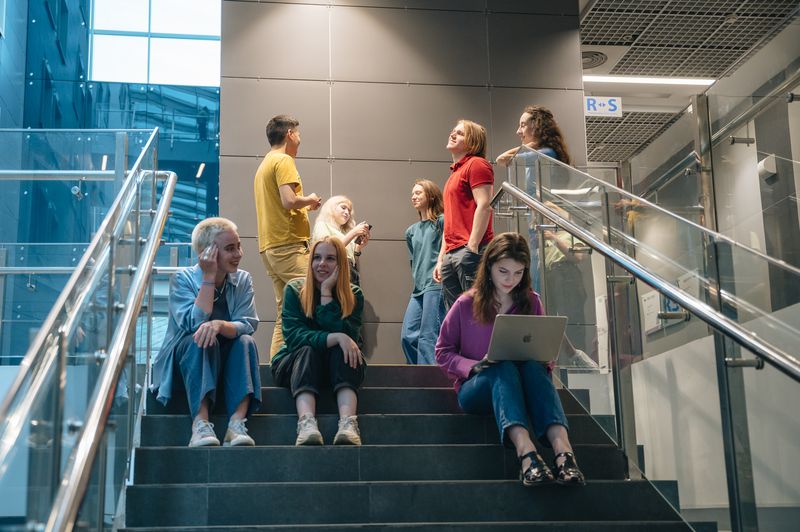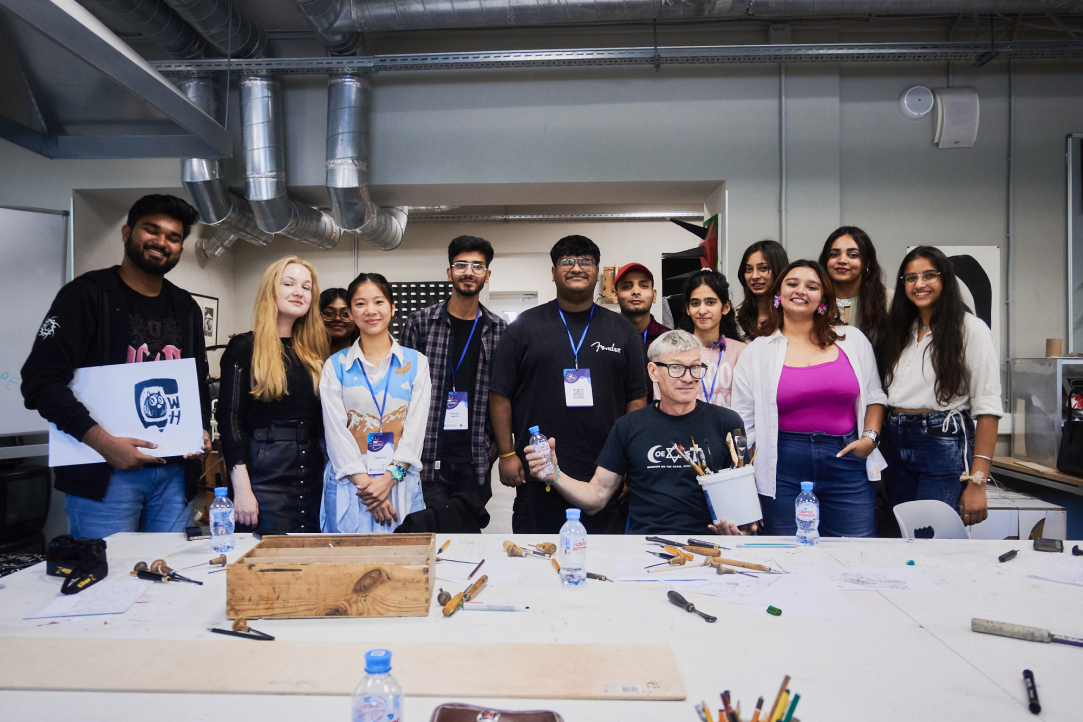
Ruthenium Complexes Can Accelerate the Development of New Medicines
A group of scientists at INEOS RAS, HSE University, and MIPT have synthesised catalysts containing a ruthenium atom and an aromatic ring. The scientists have isolated the mirror forms of these catalysts and investigated their effectiveness in producing heterocycles, which are commonly found in the structures of drugs. The research findings have been published in Chemical Communications.

‘Making Useful Acquaintances Quickly and Easily’
From the very beginning of their university years, HSE students start to develop their own start-up ideas. As a result, three graduates of the bachelor’s programme in Software Engineering of the HSE Faculty of Computer Science—Andrey Losyukov, Timofey Valov, and Alexander Kulakov—created the HiBye platform for networking at events. The students presented their project and discussed their start-up with the HSE News Service.

‘We Pay Special Attention to Postcolonial Studies and Problems of Decolonisation’
The Master's Programme 'Muslim Worlds in Russia (History and Culture)' trains specialists in the history and culture of the Muslim peoples of Russia, as well as their relations with the state and other peoples at home and abroad. Admissions are open until July 25, 2024. Below, Olga Bessmertnaya, Academic Supervisor of the programme, speaks about the admission process, the courses, and the career prospects for the programme graduates.
.png)
Alumni of the GSB International Management Programme Won the 2024 Flourish Prize for the UN Global Goal 3
The winners of the prestigious 2024 Flourish Prize international competition dedicated to celebration of business as an agent of world benefit are this year's graduates of the Master's programme in International Management at the HSE Graduate School of Business. Daria Plotnikova, Ahmad Fahim Enayat, Nim Sisil Damayantha Panavala Kankanamge, Zohrab Serobian and Aysenem Bazarova, under the guidance of Ekaterina Ivanova, were awarded for the story of ‘Digital Technologies and Rehabilitation’ in the nomination of the UN Global Goal 3 ‘Good Health and Wellbeing’.

‘Promoting International Dialogue Is the Innermost Motivation That Brought Me Here’
Giovanni Pirari is a Research Fellow at the International Laboratory for the Study of Russian and European Intellectual Dialogue. He is interested in Russian language, history, and poetry, with a particular focus on visual and symbolic representation. In an interview with the HSE News Service, Giovanni discusses his spiritual understanding of the Russian language, his first encounter with the world of Dostoevsky, and his experience living in Moscow.

Connecting Space and Time: Bilinguals Associate Time with Space in Both Their First and Second Languages
An international team of researchers including scientists at HSE University investigated how bilingual individuals associate time with space. It turns out that in both their first and second languages, people associate the past with the left side of space and the future with the right. In fact, the higher the proficiency in a second language, the more pronounced this relationship becomes. The study findings have been published in Scientific Reports.

HSE University Participates in Youth Hiking Tourism Development Strategy
HSE University and the project team of ‘Hikes of the First—More than a Trip’ are working on a strategy to promote hiking tourism among young people through 2030. At the HSE University project session, honoured travellers of Russia, trail builders, and representatives from various institutions, such as HSE University and the Ministry of Natural Resources and Environment of Russia, came together to work on proposals. For three years, university experts were designing mechanisms for creating the infrastructure for hiking tourism, taking into account safety standards, eco-friendliness, and professional training for guides.

HSE University-St Petersburg Hosts Students from 12 Countries at the International Summer School
On July 10, HSE University-St Petersburg launched the International Summer School—a series of classes for students from India, Vietnam, the Republic of Korea and other countries. Foreign guests are getting to know the university, attending lectures in six fields of study, and enjoying an inspiring cultural programme.

HSE University Leads the AI Alliance Ranking
The AI Alliance Russia has released a new ranking of Russian universities based on the quality of education in the field of AI. Similar to last year, HSE University has joined the leaders in A+ group alongside MIPT and ITMO. A total of 207 universities from 69 Russian regions participated in the ranking. In 2024, over 35,000 students were enrolled in AI-related programmes at these universities.

HSE University at VK Fest: VR Games and Emotion Recognition
On July 13-14, 2024, the annual large-scale VKontakte festival took place at Moscow’s Luzhniki Stadium. HSE University, as usual, participated in the event. The university's tent featured a variety of activities, including emotion recognition challenge, quizzes about artificial intelligence, IT career testing, a smile detector, VR gaming, and a blue tractor equipped with a smart sprinkler system.


Registration deadline - April 30